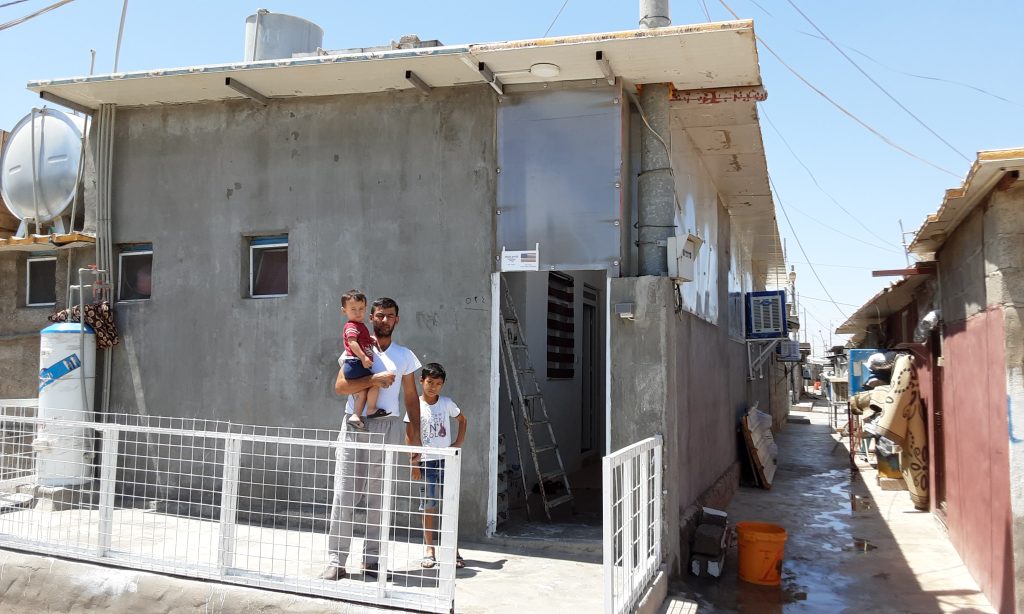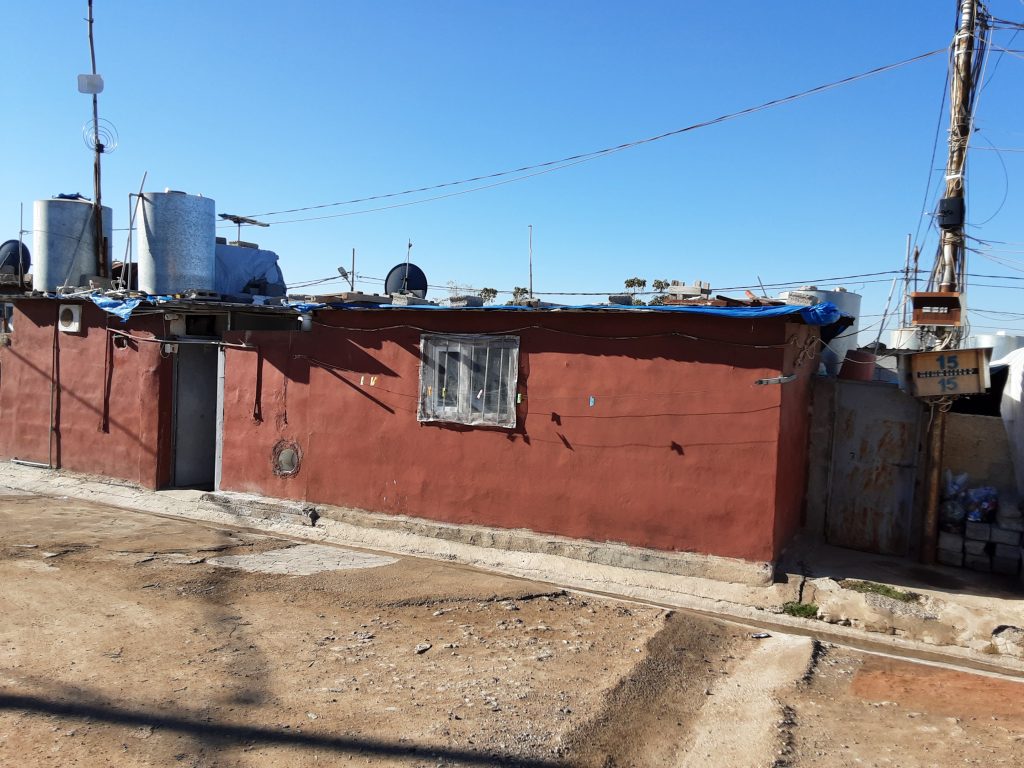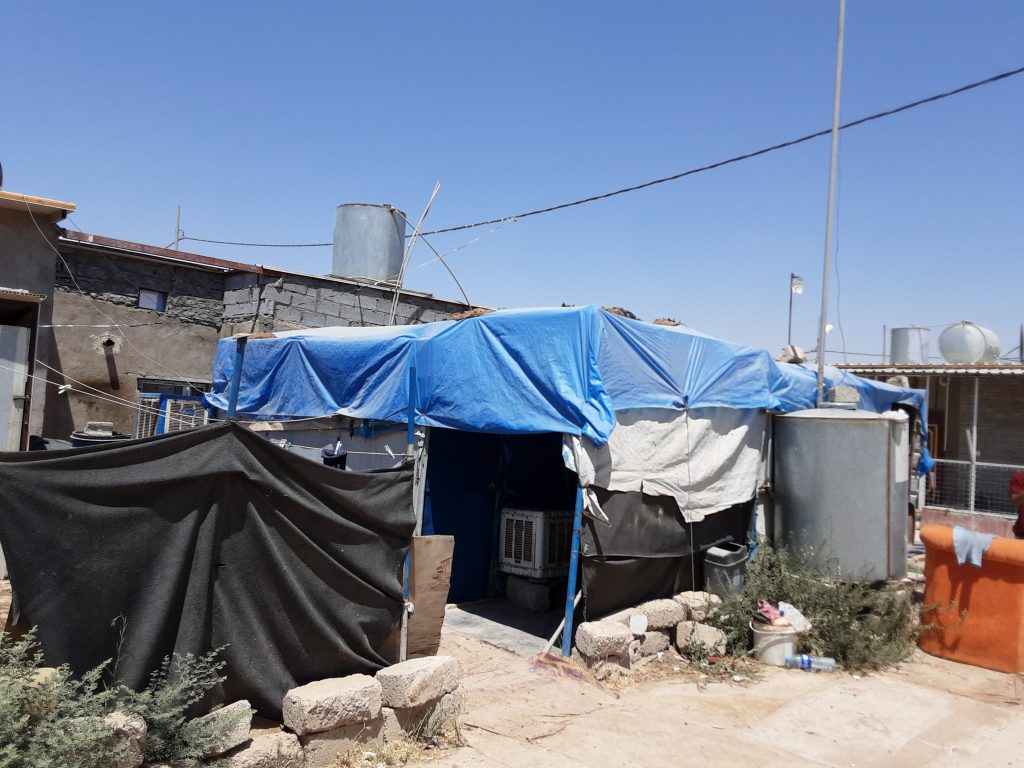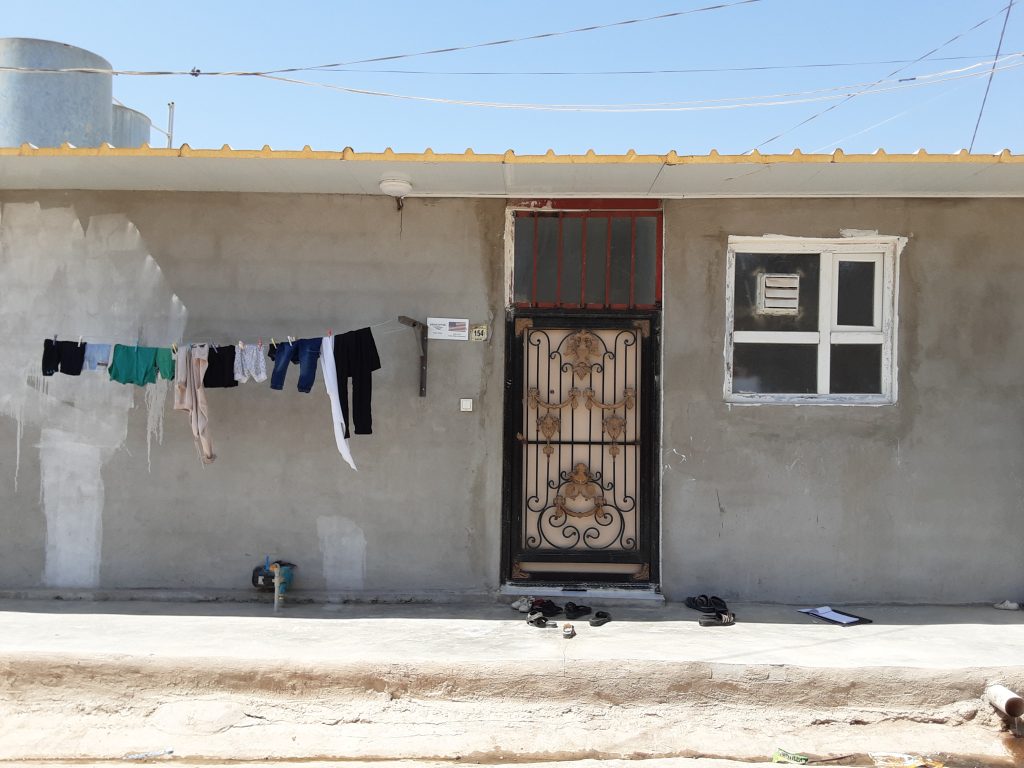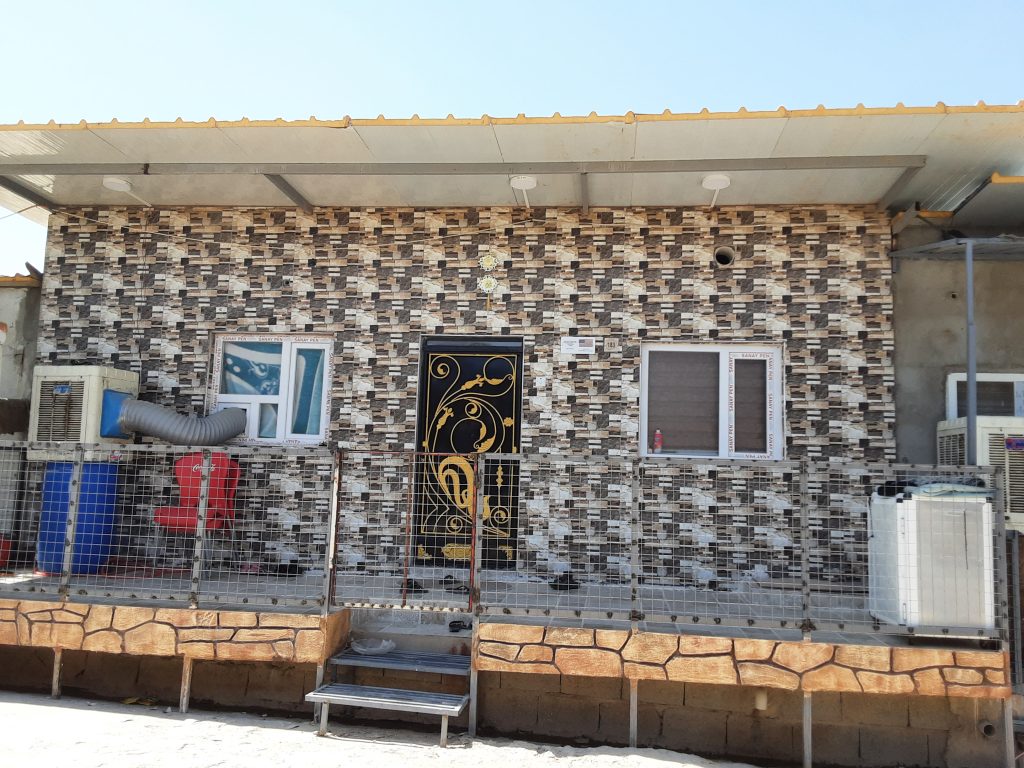Project Update: A Successful End to Year 2 of Improving Homes and Livelihoods of Vulnerable Syrian Refugees in Iraq
Peace Winds is happy to report a successful end to the second year of our Project for Sustainable Shelters, Livelihoods, and Camp Infrastructures for Syrian Refugees in the Kurdistan Region of Iraq!
Our project year began on September 30, 2021, and since then, our teams in four refugee camps in Erbil and Duhok in northern Iraq have improved the lives of 1,074 Syrian families who were previously living in substandard housing. In Duhok, shelter upgrades included renovations to inadequate kitchens, latrines, and showers. In Erbil, Peace Winds’ project focused on improving accessibility for refugees with disabilities, so shelter upgrades included modifications such as wider doorways, wheelchair-accessible ramps, handrails, and more accessible showers and latrines.
In addition to individual shelter improvements, Peace Winds completed 26 upgrades to public camp spaces in Erbil, making them more accessible to people with disabilities. Modifications included coverings across open drainage channels and walkways, wheelchair-accessible ramps, handrails, and increased seating and signage.
Rather than hiring contractors to perform the construction, Peace Winds’ unique cash-for-work program allows beneficiaries to complete upgrades to their own shelters. This way, refugees are more invested in maintaining their homes in the long term, they earn wages, and they build construction skills that they can use to find future job opportunities and further support their families.
Not only have our employees and beneficiaries completed this project, but we are happy to report that 97 percent of beneficiaries in Duhok and 98 percent of beneficiaries in Erbil are satisfied with the results of the project. Impacts on refugees include an increased sense of safety and well-being as well as improved independence and mobility for persons with disabilities.
Peace Winds would like to thank our dedicated employees on the ground in the Kurdistan Region of Iraq, our partners Barzani Charity Foundation and UNHCR, and the U.S. Department of State: Bureau of Population, Refugees, and Migration and U.S. Consulate General Erbil for funding and supporting this project.
This article was funded in part by a grant from the United States Department of State. The opinions, findings, and conclusions stated herein are those of the authors and do not necessarily reflect those of the United States Department of State.
